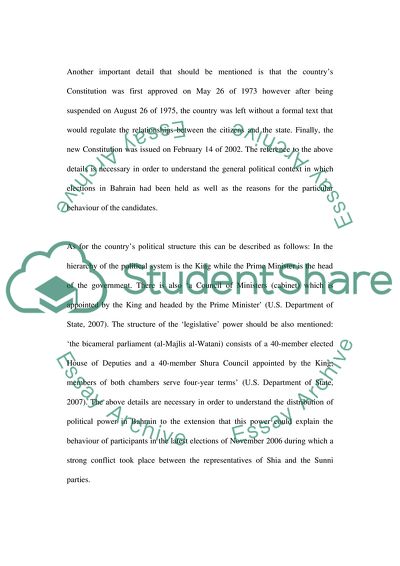Cite this document
(Election on Bahrain Book Report/Review Example | Topics and Well Written Essays - 5000 words, n.d.)
Election on Bahrain Book Report/Review Example | Topics and Well Written Essays - 5000 words. Retrieved from https://studentshare.org/politics/1706504-election-on-bahrain
Election on Bahrain Book Report/Review Example | Topics and Well Written Essays - 5000 words. Retrieved from https://studentshare.org/politics/1706504-election-on-bahrain
(Election on Bahrain Book Report/Review Example | Topics and Well Written Essays - 5000 Words)
Election on Bahrain Book Report/Review Example | Topics and Well Written Essays - 5000 Words. https://studentshare.org/politics/1706504-election-on-bahrain.
Election on Bahrain Book Report/Review Example | Topics and Well Written Essays - 5000 Words. https://studentshare.org/politics/1706504-election-on-bahrain.
“Election on Bahrain Book Report/Review Example | Topics and Well Written Essays - 5000 Words”, n.d. https://studentshare.org/politics/1706504-election-on-bahrain.


